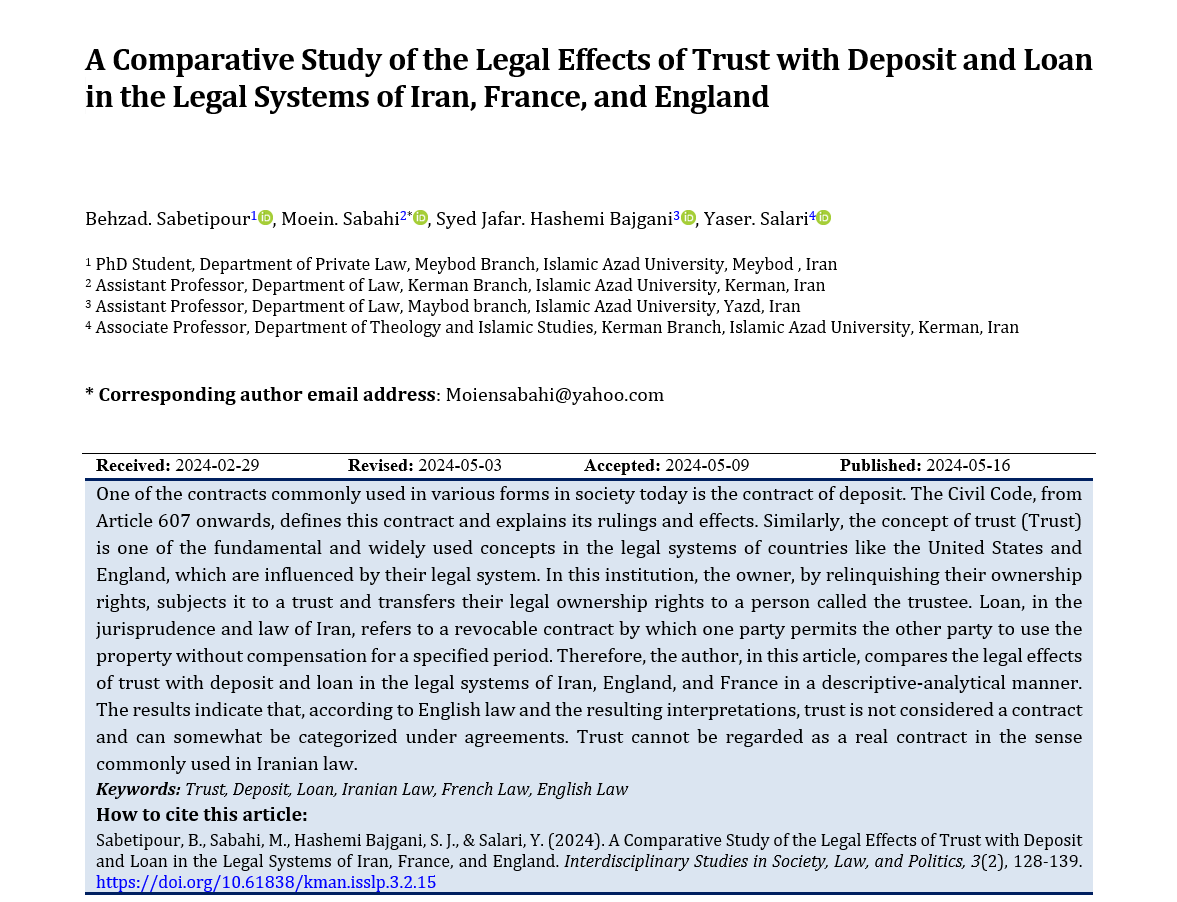A Comparative Study of the Legal Effects of Trust with Deposit and Loan in the Legal Systems of Iran, France, and England
Keywords:
trust deposite, loan, Iranian Law, French Law, English LawAbstract
One of the contracts commonly used in various forms in society today is the contract of deposit. The Civil Code, from Article 607 onwards, defines this contract and explains its rulings and effects. Similarly, the concept of trust (Trust) is one of the fundamental and widely used concepts in the legal systems of countries like the United States and England, which are influenced by their legal system. In this institution, the owner, by relinquishing their ownership rights, subjects it to a trust and transfers their legal ownership rights to a person called the trustee. Loan, in the jurisprudence and law of Iran, refers to a revocable contract by which one party permits the other party to use the property without compensation for a specified period. Therefore, the author, in this article, compares the legal effects of trust with deposit and loan in the legal systems of Iran, England, and France in a descriptive-analytical manner. The results indicate that, according to English law and the resulting interpretations, trust is not considered a contract and can somewhat be categorized under agreements. Trust cannot be regarded as a real contract in the sense commonly used in Iranian law.
Downloads






